The Mumbai chapter of India's first and only menstruation festival kicks off today with events aimed at breaking taboos around the subject

There was an incident in Aarey Colony in 2018 that's a sad reflection of how little certain sections of Indian society have progressed. A local there was possessed by God, or so the locals believed. They put him on a pedestal, venerating him as an embodiment of some sort of divine entity. In the meantime, his mother's menstrual cycle started. And in keeping with a regressive custom prevalent there, she wasn't allowed to touch him since that would seemingly besmirch his newfound sanctity.
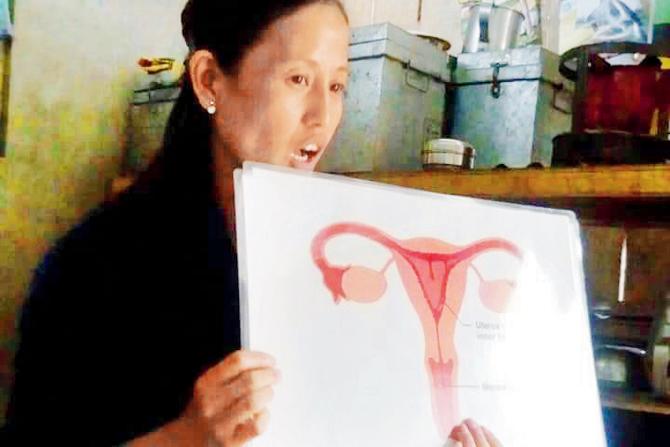
An expert talks about menstruation
ADVERTISEMENT
The backwardness at display here belies every claim of India being an "emerging nation". But unfortunately, it is exactly the sort of menstrual taboo that's prevalent across the country. The deplorable practice of chhaupadi, for instance, involves menstruating women being kept away from their households and away in cattle sheds, which they are confined to until they are "pure" again. It's a custom that's straight out of the dark ages. And it's also something that the folks behind Maasika Mahotsav - billed as India's first and only menstruation festival, which starts in Mumbai today - hope to eradicate by raising awareness.
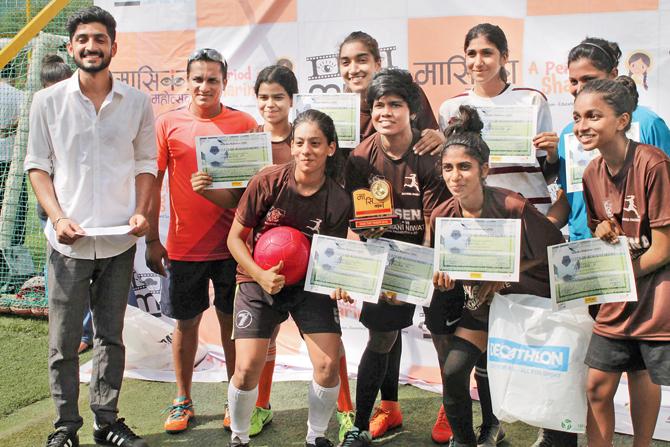
Women taking part in a football tournament as part of Maasika Mahotsav
Started across three states in 2017, the event will now encompass six more this year, while also making its debut in Nepal, a country where menstrual taboo is as prevalent as in India. Nishant Bangera, a 27-year-old who started the initiative under the banner of MUSE, an NGO that he co-founded, tells us, "The taboos differ from culture to culture, and also geographically. So what North Indians follow will be very different from the south. We have noticed some bizarre things in the surveys we have conducted. For example, women don't touch any green vegetable when they are on their periods since they think that they will get spoilt. They do not touch their hair because they feel impure. They also don't water medicinal plants, like tulsi or neem. And that apart, there is of course the issue of untouchability," all of which is corroborated by Roopa, a tribal girl from Aarey we speak to, who tells us, "Gaon mein ye sab toh chalta hi hai."
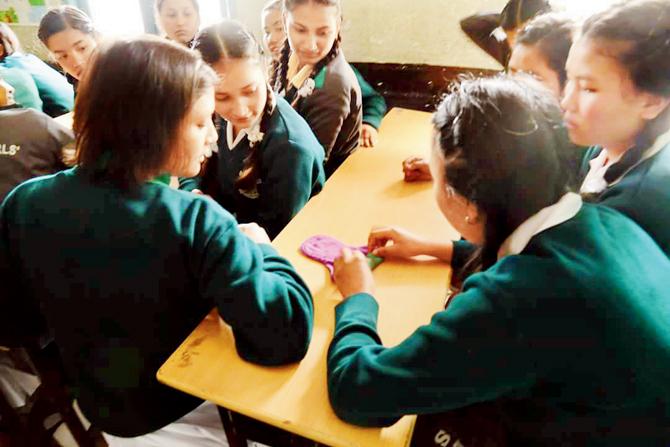
School girls being taught about the right way to dispose sanitary napkins
So the aim now, Bangera adds, is to hold a mirror to those who practise this custom through a range of activities aimed at showing them the folly of their ways. These include talks where experts will break down how natural the process of menstruation is and explain ways of disposing cloth pads or sanitary napkins in an environmentally friendly manner; completing jigsaw puzzles where the final picture is of a uterus that will give children a visual representation of the organ; organising football matches and cycling tours for women; and holding entertainment events such as folk dancing and singing.
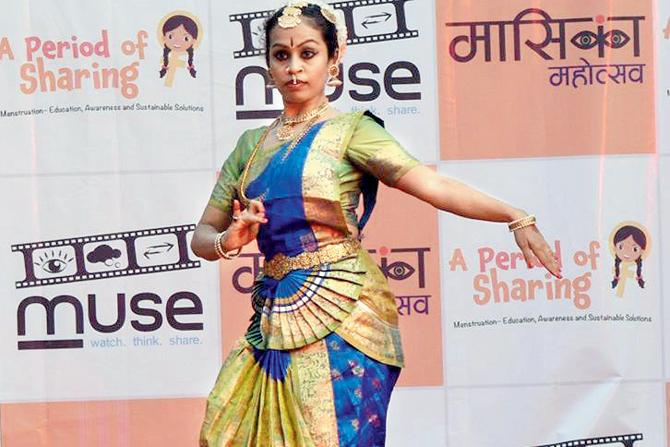
A Lavani dancer in performance
Bangera tells us that in the inaugural year of Maasika Mahotsav, he made a mistake in choosing a venue that wasn't convenient for the economically weaker sections. Hence, this time around, he's chosen Aarey, Yeoor and a slum area in Thane called Banjara Basti so that he can take the festival directly to the people who need to benefit from it the most.
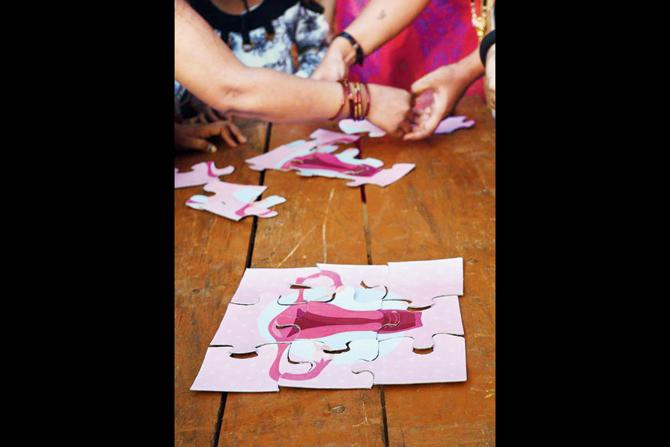
Children complete a jigsaw puzzle depicting an uterus
But what else can be done to eradicate the ignorance? We ask Bangera this question and he replies, "See, there are a few things that must be done to improve the situation. One, at an individual level, you need to talk to women who you feel might be suffering from this taboo, such as your help at home, to understand what their problems are and help them out. Two, at a societal level, we need religious heads to come out and say that these practices aren't backed by logic. Thirdly, at the highest level, the government must come out with laws aimed at tackling the menace. In Nepal, for instance, there is now a ban against chhaupadi. We must have similar legislation in India as well."

Nishant Bangera
That makes sense, but when we ask him what the Maharashtra government has done in this regard, the reply is, "I would say nothing apart from the Anti-superstition Bill, which came about after the Narendra Dabholkar case," showing how the fight lies in the hands of activists even as the authorities do little.
Till: May 26
AT: Aarey Colony, Goregaon East; Yeoor, Thane; Banjara Basti, Thane.
LOG ON TO: musefoundation.in for details of the event
Catch up on all the latest Mumbai news, crime news, current affairs, and also a complete guide on Mumbai from food to things to do and events across the city here. Also download the new mid-day Android and iOS apps to get latest updates
 Subscribe today by clicking the link and stay updated with the latest news!" Click here!
Subscribe today by clicking the link and stay updated with the latest news!" Click here!







